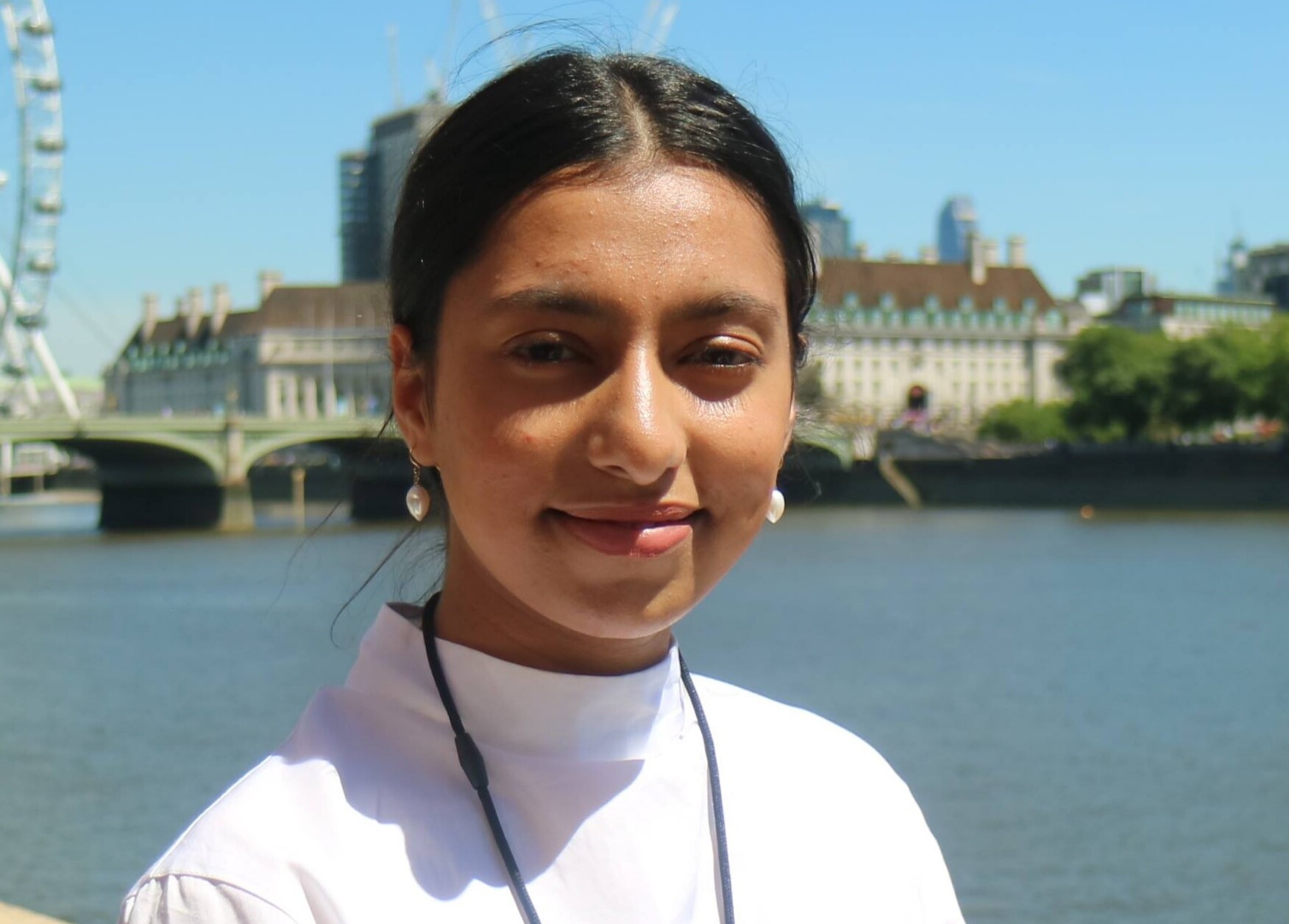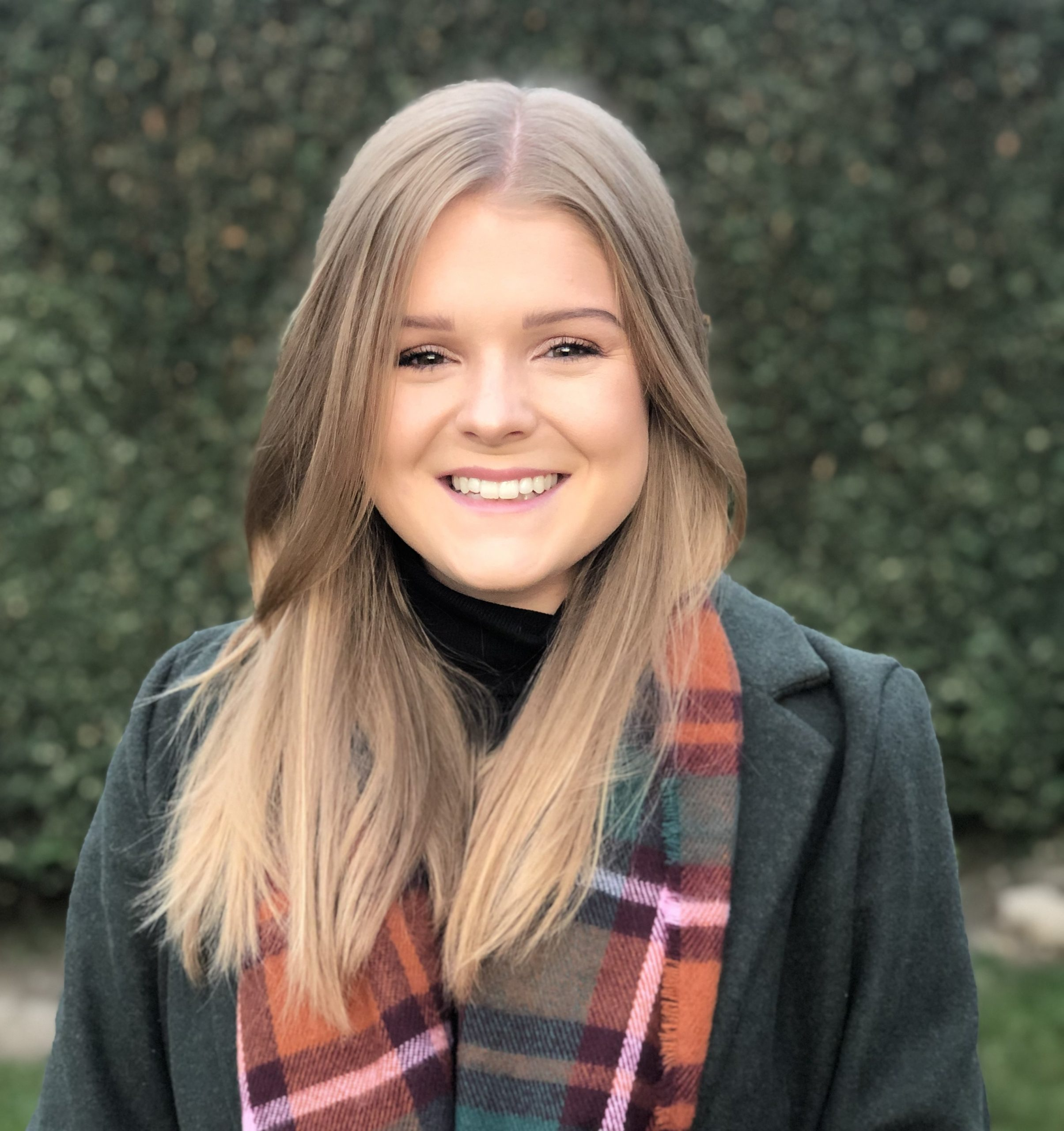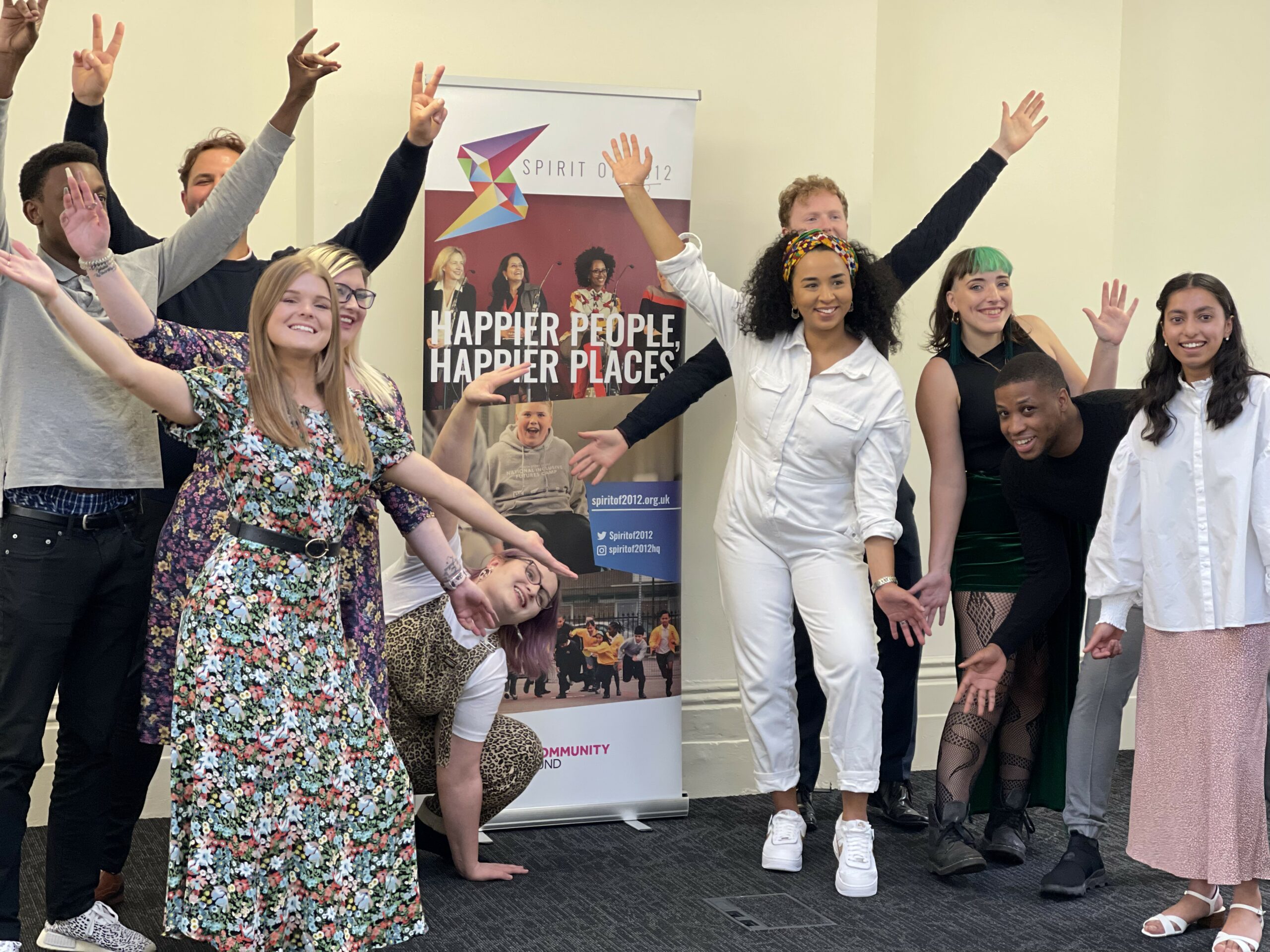
Youth Advisory Panel

At Spirit of 2012, we continued to honour the commitment made by the London 2012 Olympic and Paralympic Games to Inspire a Generation. One of our 4 charitable objects is: The advancement of education of children and young people, including but not limited to sporting and cultural activities.
In 2015, with support from Participation People, we recruited our first Youth Advisory Panel to ensure young people were an essential part of our decision-making process. Between 2015 – 2021, were three panel cohorts with 31 members in total from across the UK. The Chair of the Youth Panel was a Director of the Spirit of 2012 Board. In 2021 we took the decision not to recruit a forth cohort as the majority of our grant funding activity had concluded, but to recruit three YAP alumni to the Board to ensure youth voice continued to be an integral part of our decision making.
Project Detail
What was the Youth Advisory Panel?
Spirit’s Youth Advisory Panel brought together cohorts of young people from across the UK. Each group took on big responsibilities, from advising the Spirit Board on Strategy to advising on the design and delivery of funding programmes. They sat on project steering groups, such as EmpowHer, ran learning days alongside our Grant Managers, wrote blogs and opinion pieces, attended events and project visits as Spirit Ambassadors and were members of grant making panels. Youth engagement specialists Participation People, ensured that the panel members were fully supported to take part in the panels with personal and professional development support.
On alternate years, the panel also oversaw the Youth Challenge Fund, designing and overseeing their own funding round to allocate £100,000 for projects in keeping with our Theory of Change. The panel didn’t just have a voice in that process, they led it. Each cohort designed application criteria, reviewed proposals and made a funding recommendation to the Spirit Board. This hands-on approach gave the young advisors real-world experience in leadership, project evaluation and funding strategy.
The following projects received funding via the Youth Challenge Fund:
- Reading Rooms (Verbal Arts Centre, Derry): A book club and storytelling project offering young offenders a safe space to discuss ideas and share reflections through literature.
- Rhythm and Respect (Plymouth Music Zone): A community music project that brought together people of all abilities to create, connect, and celebrate.
- Creative Minds (Youth Cymru, South Wales): A mental health initiative empowering young people to use creativity to challenge stigma and promote positive change.
- Bay Create (Whitley Bay Big Local): An intergenerational cultural project that united under-25s and over-60s through art and shared heritage.
A legacy of learning and impact
Six years, three panels and 31 young people later, Spirit has learned a great deal about how to effectively engage a diverse and committed panel of young people to advise on its work, at the same time upskilling and inspiring the young people who volunteered their time to support us. We have also learned a great deal about what we would do differently if we were to set up another youth panel.
Here are our five lessons learned and recommendations for organisations
setting up a youth board or youth advisory panel:
- Be clear on the panel’s purpose
“For other organisations looking to set up a youth advisory panel I think the first thing is to make sure that you’ve got the intentions and the resources to match it.” – Panellist 2017-18 - Set it up with a test-and-learn ethos
“Be prepared to get some things wrong.” – Panellist 2015-16 - Youth voice does not simply mean “do what young people say”
“There were cases and times when – us being young people – we were very empathetic, we maybe kind of lost our way. But it was up to us to bring ourselves back in terms of where we might make that decision, where that money should go.” – Panellist 2019-21 - Evolve according to organisational need
“I think my role and the rest of the panel’s roles really have a positive impact on Spirit’s work. Now, being part of the Board, I can see how the YAP fed into Spirit as an organisation.” – Panellist 2019-21 - Be realistic about what can be achieved with the resources at your disposal
“It’s not as easy as you think to facilitate decision making amongst other people – whether that involves getting a third party contractor involved, whether that involves dedicating members of staff, whether that involves dedicating resources and pots of money. Do those things because otherwise you’re going to have a process that’s not worth anybody’s time.” – Panellist, 2015-17
You can find some of these reflections in our Youth Panel Evaluation.

Sana Amin
Sana Amin was a member of the Youth Advisory Panel between 2017 and 2019, and progressed to the role of Chair for the 2019-21 cohort, making her a Spirit Board member. Towards the end of her time with Spirit, she reflected on her experience:
Young people get the opportunity to develop skills, challenge expectations, grow their network and make a difference, as well as feel and know their voice is heard and actioned upon.
For organisations, they will have a better idea of how to navigate and reflect the interests and needs of local communities, future proof decision making and invest in the future (now) of leaders. They will also be challenged to bring innovative and unique ideas that are different from traditional structures.
As for the pandemic, young people are affected the most both economically and socially, in terms of employment and wellbeing, and if we are not part of informed, high-level decision-making, this is not a true reflection of society.
Sophie Humphries
Throughout their time on the panel, the young people were encouraged to document their experiences of being an advisor to Spirit of 2012. This piece from Sophie Humphries reflects on the role she played in creating the 2020 YAP Challenge Fund:
Being part of Spirit of 2012’s Youth Advisory Panel empowers me to use my voice to create change through contributing to Spirit’s decision-making process. This year, I joined the YAP Challenge Fund Research Group, set up to develop ideas, priorities and outcomes that we wanted our fund to achieve, both for Spirit and the beneficiaries of the chosen project.
Being part of the research and development team for our challenge fund meant finding out where the gaps in funding were and the areas that were the most deprived. This was a challenging job because being a group of young people who passionately want to make a change, we found it difficult to agree on what areas were important to us – apparently all of them!



